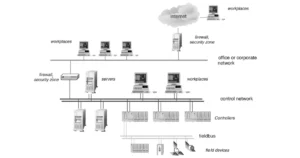In today’s fast-paced business landscape, small business owners are continually seeking ways to enhance productivity and streamline operations. Fortunately, advancements in technology have provided a plethora of tools and solutions to help businesses achieve these goals more efficiently than ever before. From project management to communication and marketing, there are countless tech tools available to empower small business owners and their teams. In this article, we’ll explore some of the top tech tools that every small business owner should consider incorporating into their workflow to maximize productivity and drive success.
- Project Management Tools: Effective project management is essential for small businesses to stay organized and on track with tasks and deadlines. Project management tools like Trello, Asana, or Monday.com provide centralized platforms for planning, organizing, and collaborating on projects. These tools allow teams to create tasks, set deadlines, assign responsibilities, track progress, and communicate seamlessly, fostering collaboration and accountability across the organization.
- Cloud Storage and File Sharing: Gone are the days of storing files and documents solely on local hard drives. Cloud storage solutions like Google Drive, Dropbox, or Microsoft OneDrive offer secure and scalable platforms for storing, accessing, and sharing files from anywhere with an internet connection. Small business owners can leverage cloud storage to ensure data accessibility, collaboration, and disaster recovery, while also minimizing the need for physical storage hardware and reducing the risk of data loss.
- Communication and Collaboration Tools: Effective communication is the cornerstone of any successful business. Small business owners can enhance communication and collaboration among team members and clients using tools like Slack, Microsoft Teams, or Zoom. These platforms offer instant messaging, video conferencing, and file sharing capabilities, enabling remote teams to stay connected, share ideas, and collaborate in real-time, regardless of geographic location.
- Accounting and Invoicing Software: Managing finances is a critical aspect of running a small business, and leveraging accounting and invoicing software can streamline financial processes and ensure accuracy. Platforms like QuickBooks, FreshBooks, or Xero offer user-friendly interfaces for managing expenses, invoicing clients, tracking payments, and generating financial reports. By automating repetitive tasks and providing insights into cash flow and profitability, these tools empower small business owners to make informed financial decisions and maintain financial health.
- Email Marketing Platforms: Email marketing remains a powerful tool for small businesses to engage with customers, promote products or services, and drive sales. Email marketing platforms like Mailchimp, Constant Contact, or Sendinblue offer intuitive interfaces for creating, sending, and tracking email campaigns. These tools enable small business owners to segment their audience, personalize content, automate email sequences, and analyze campaign performance, helping them to nurture customer relationships and maximize marketing ROI.
- Social Media Management Tools: In today’s digital age, social media has become an indispensable marketing channel for small businesses to reach and engage with their target audience. Social media management tools like Hootsuite, Buffer, or Sprout Social allow small business owners to schedule posts, monitor social media activity, analyze performance metrics, and engage with followers across multiple platforms from a single dashboard. By streamlining social media management tasks, these tools enable small businesses to maintain a consistent online presence and drive engagement with their audience.
- Customer Relationship Management (CRM) Systems: Building and maintaining strong relationships with customers is vital for small businesses to foster loyalty and drive repeat business. CRM systems like HubSpot CRM, Salesforce, or Zoho CRM provide centralized databases for storing customer information, tracking interactions, managing sales pipelines, and automating marketing campaigns. By consolidating customer data and streamlining communication processes, CRM systems help small business owners better understand their customers’ needs and preferences, leading to more personalized and effective engagement strategies.



